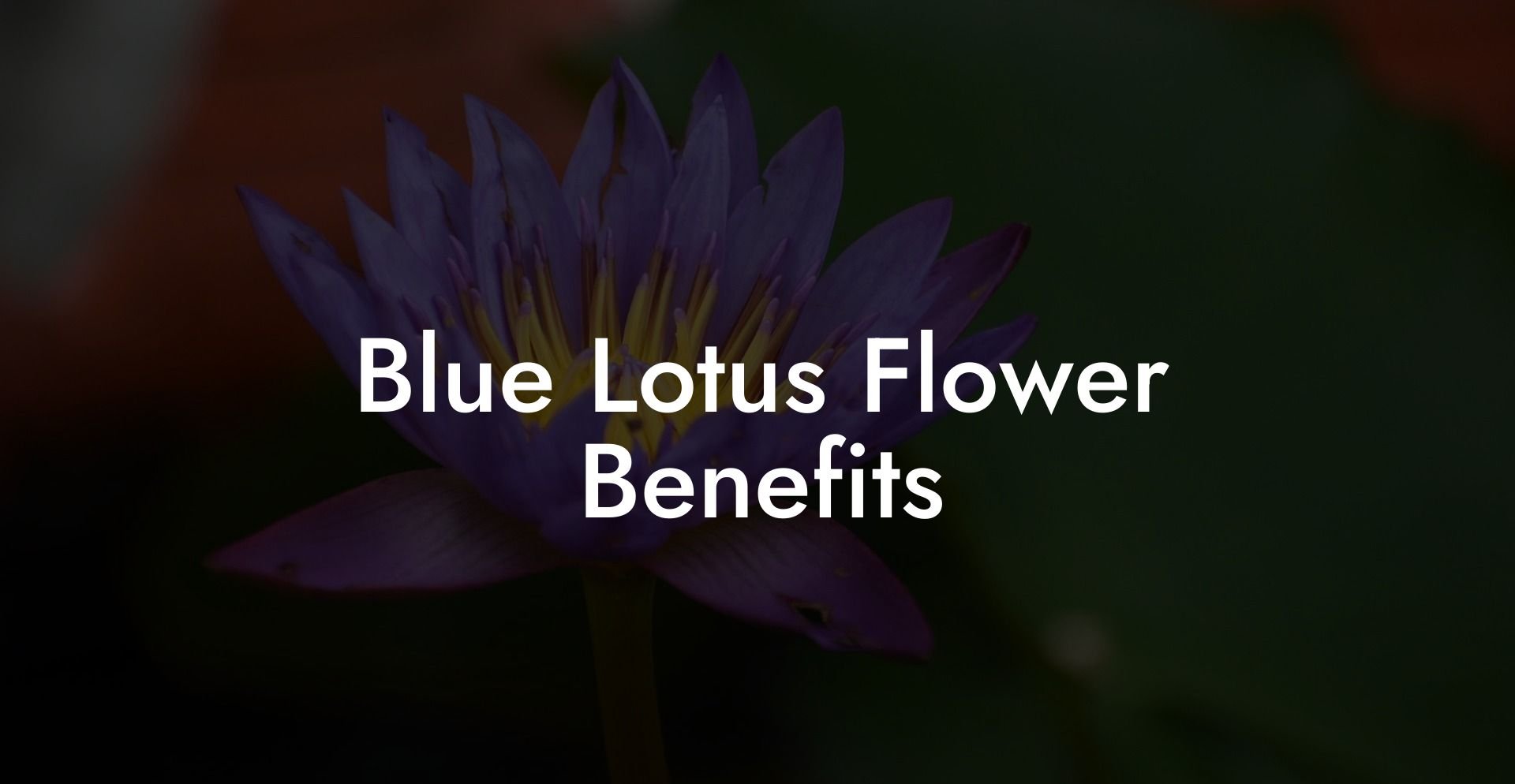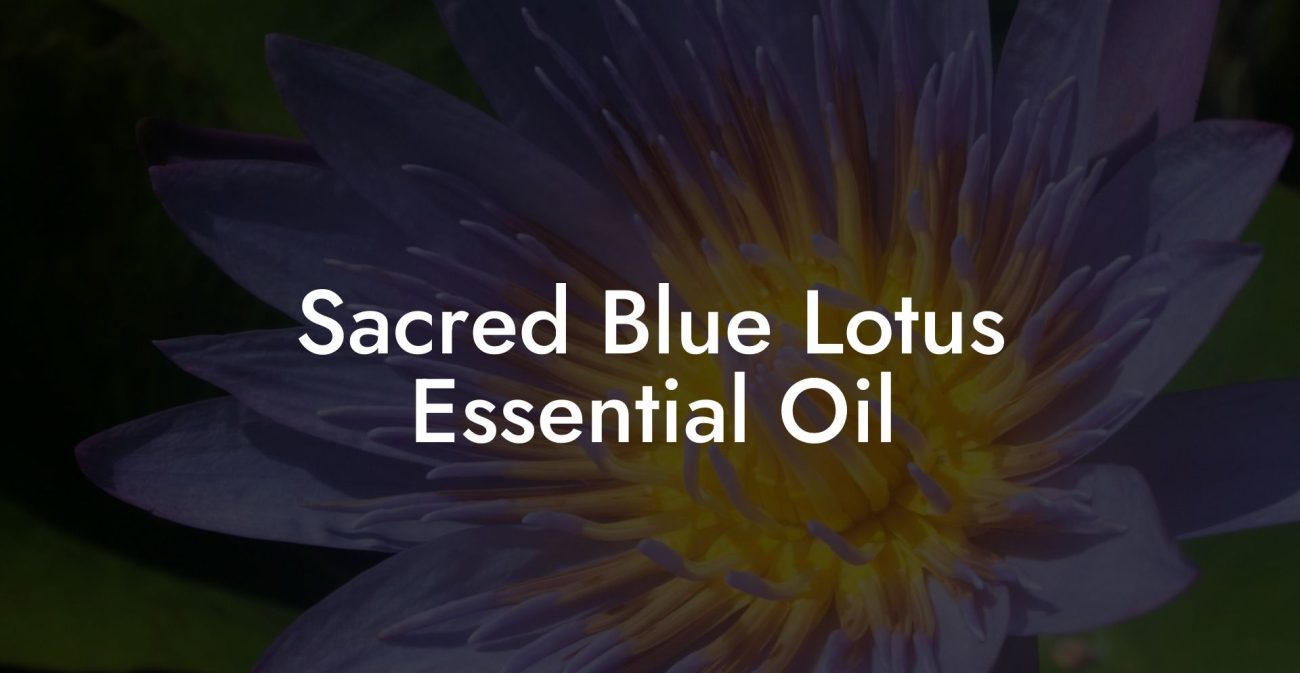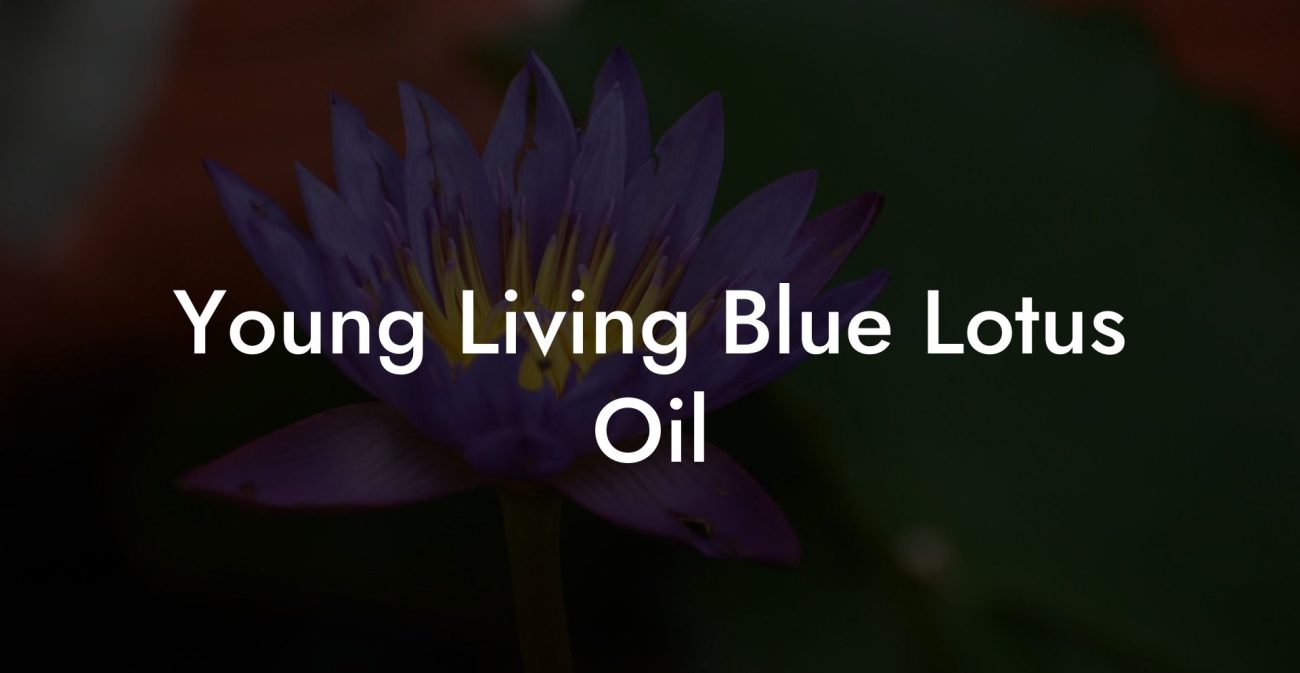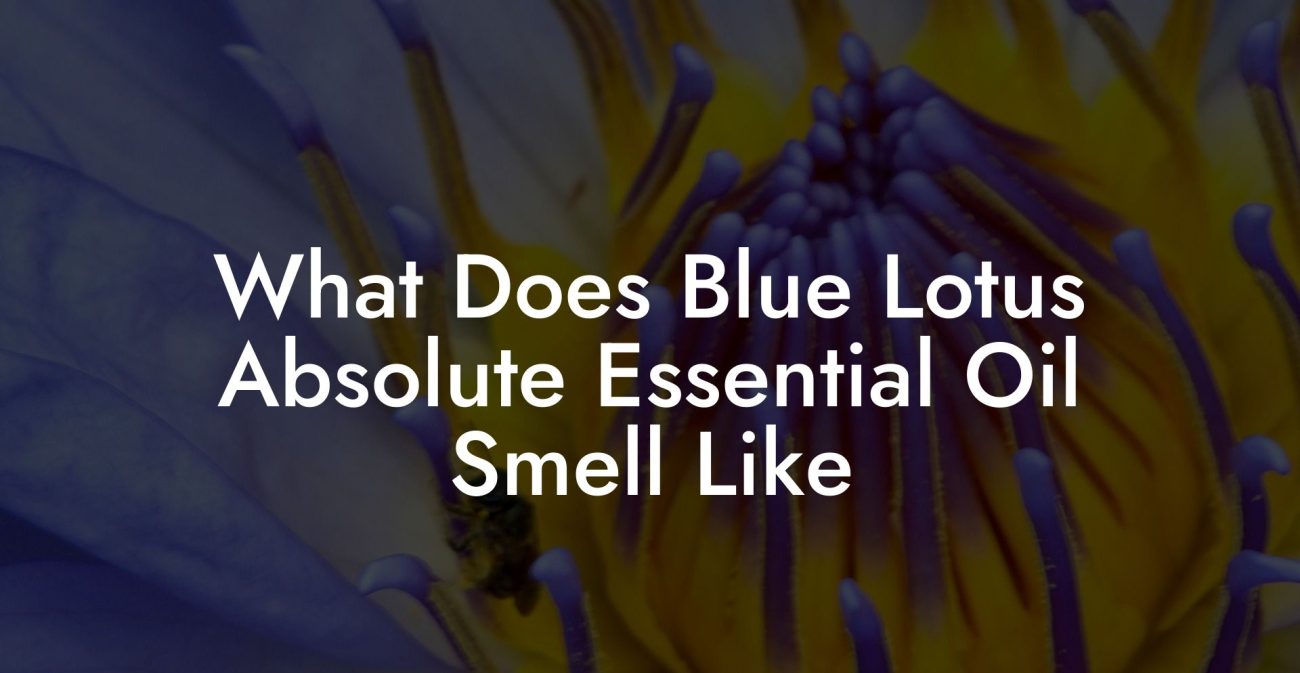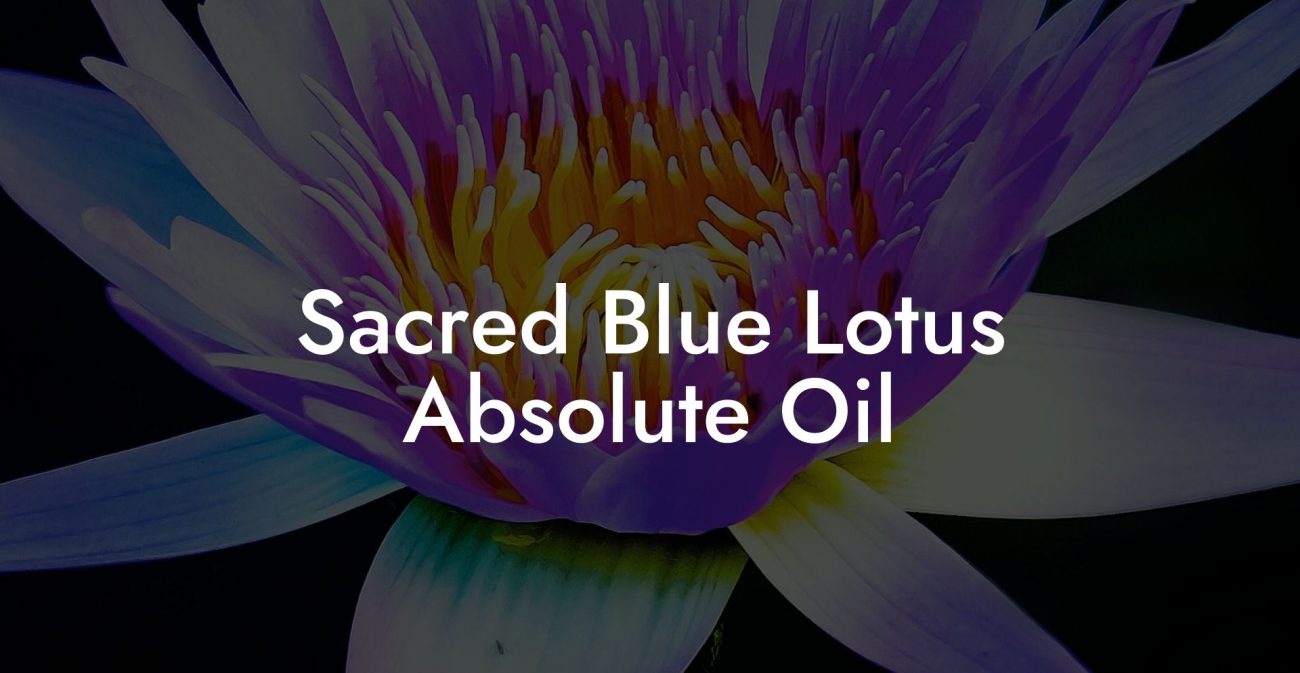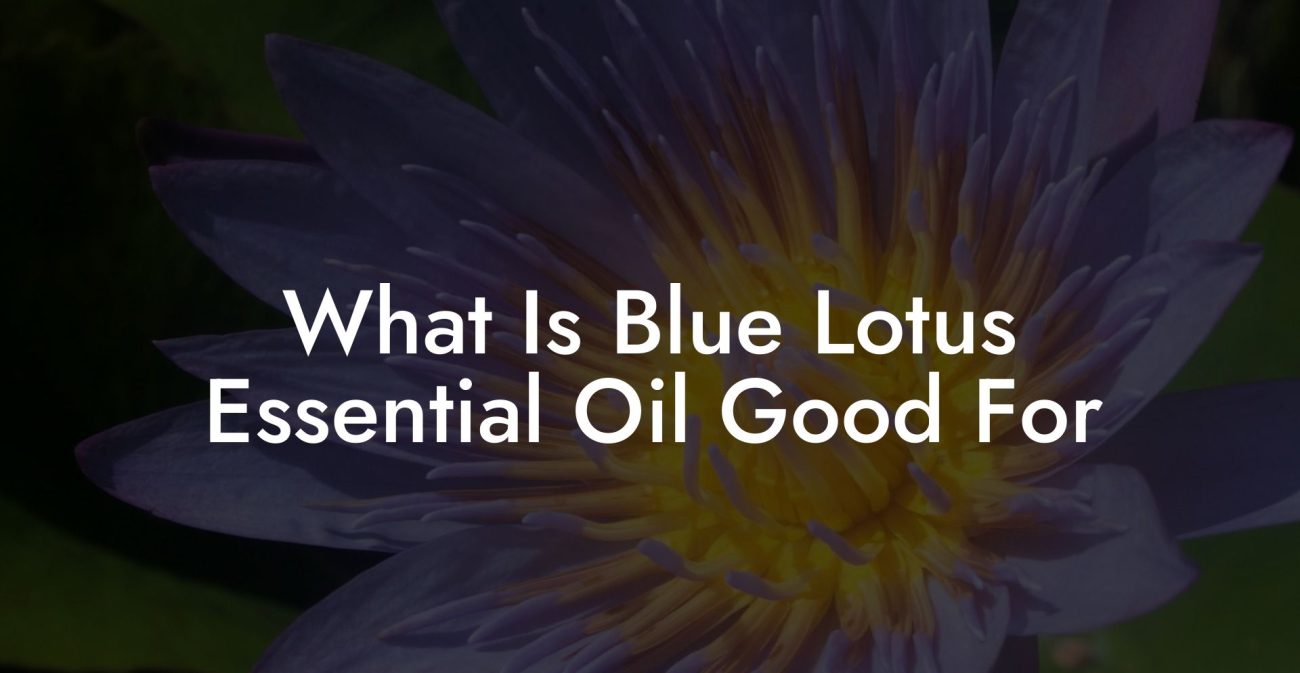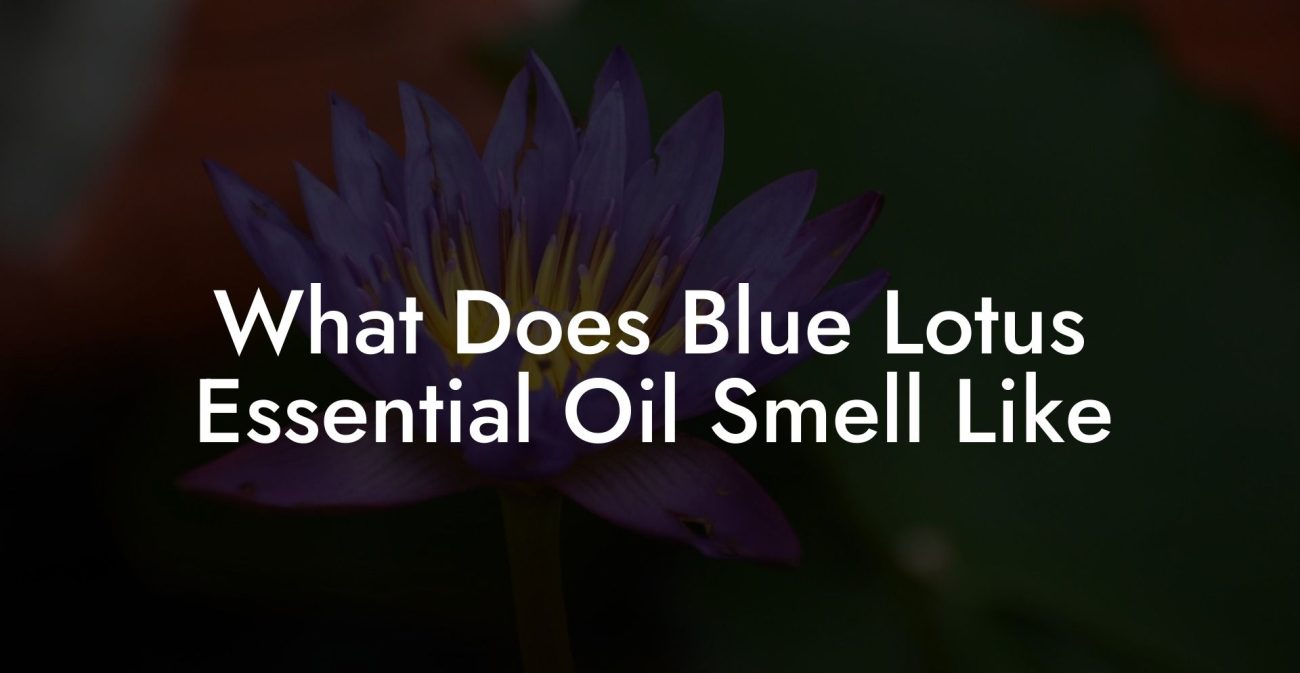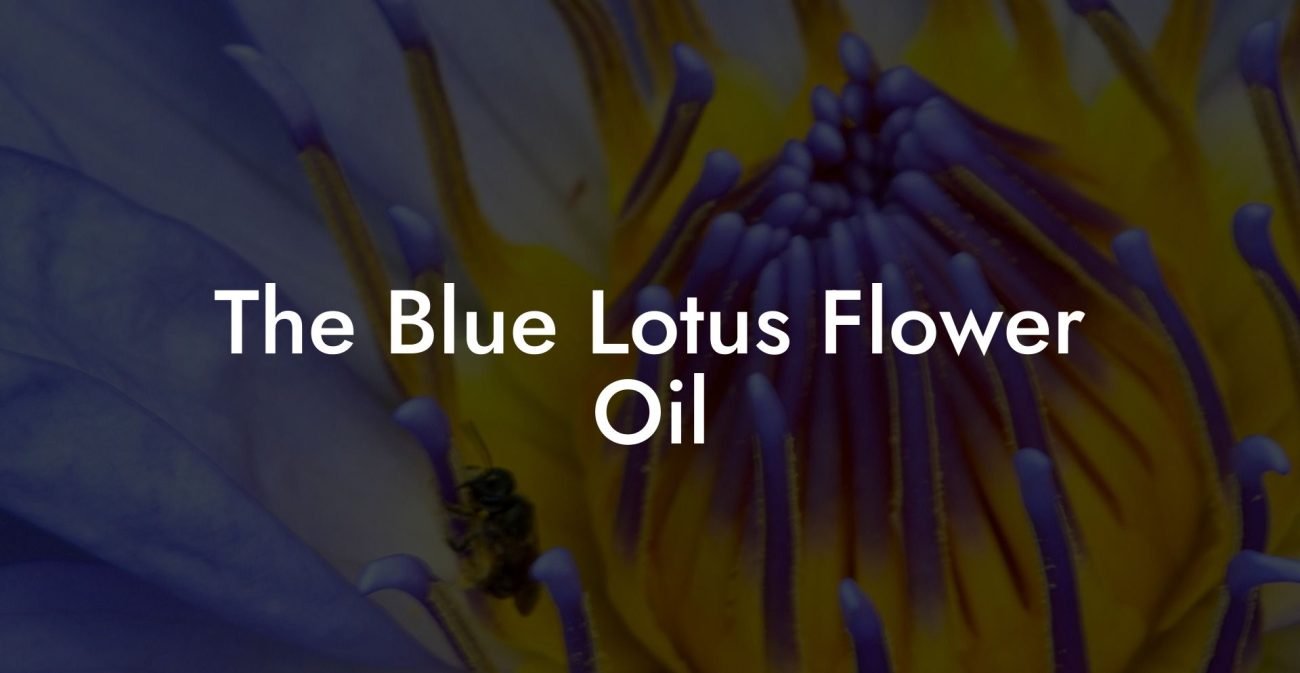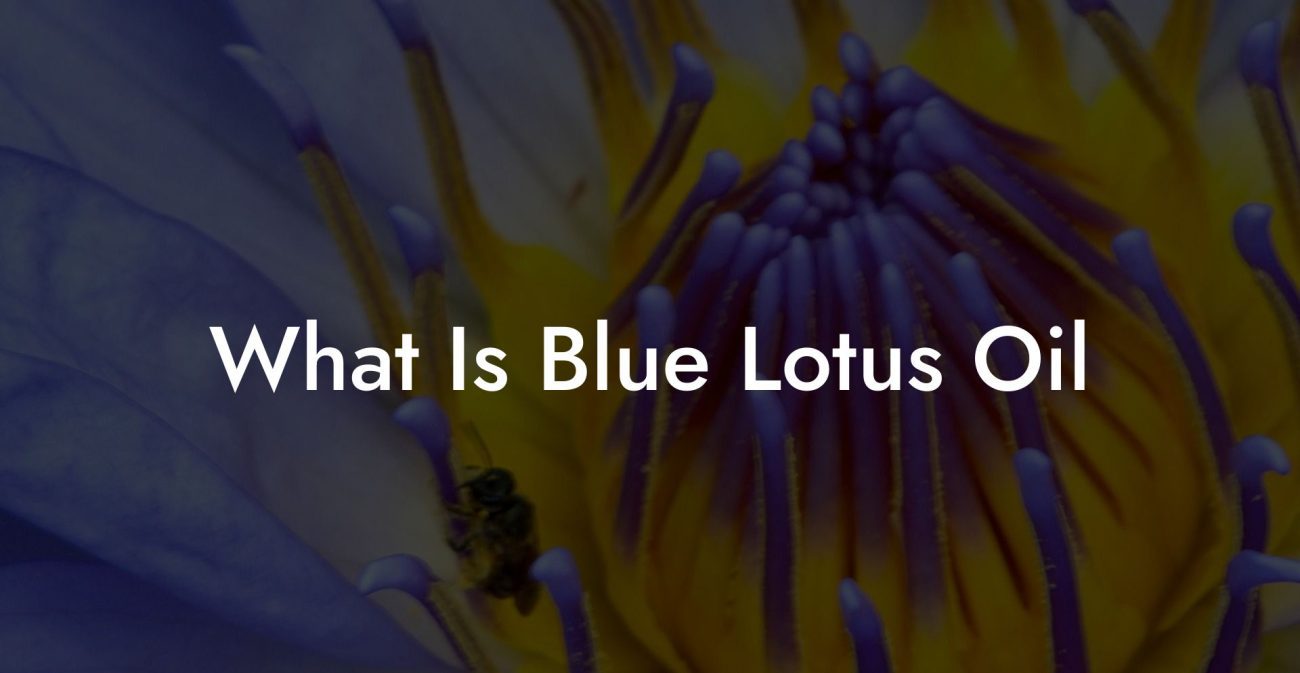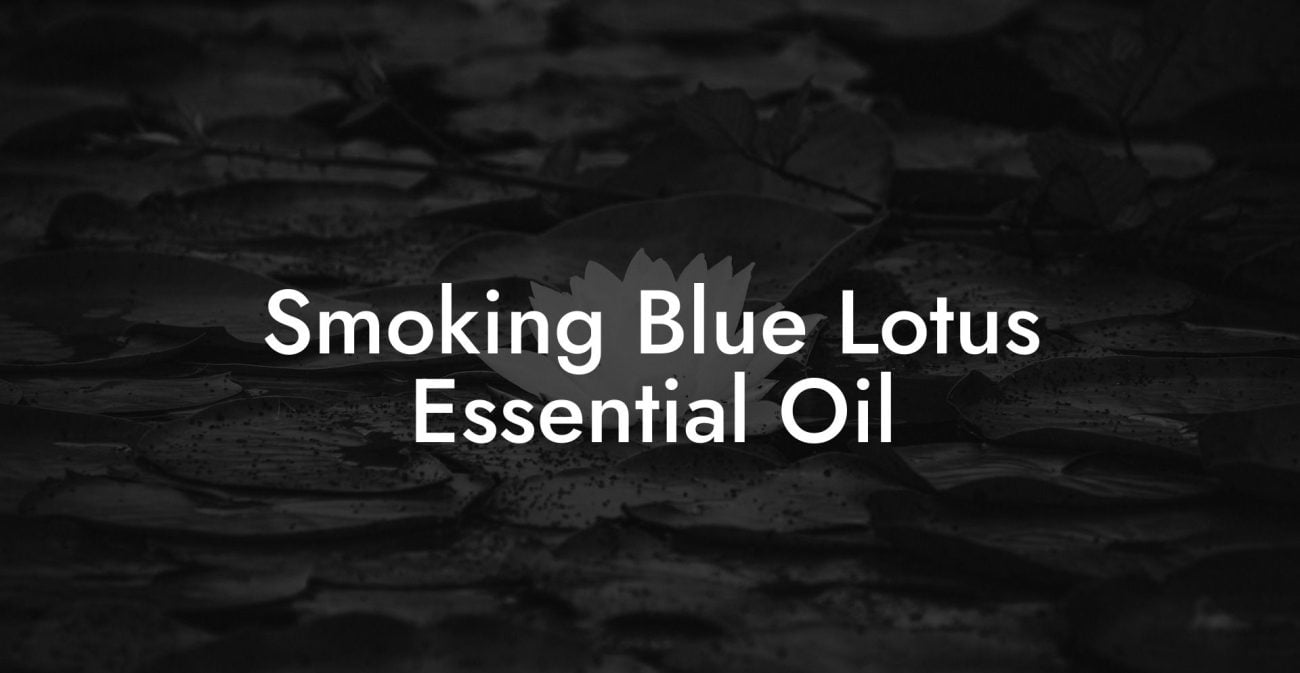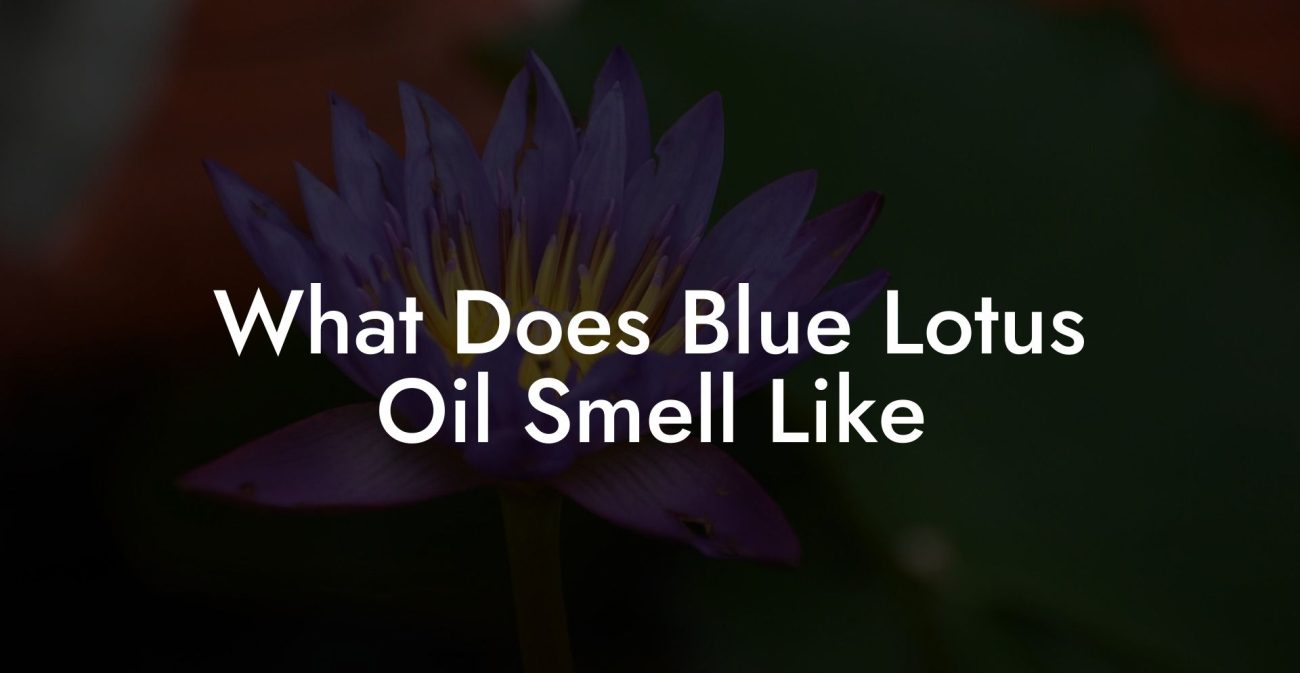Instant Answer
In Sri Lanka, Blue Lotus Essential Oil is valued for its calming and spiritual qualities, often used in meditation, aromatherapy, and traditional healing practices to promote relaxation and enhance mindfulness.
For those seeking the finest, most authentic Blue Lotus Oil, experience our hand-crafted, pure Luxury Egyptian Blue Lotus Oil for a truly luxurious addition to your wellness routine. Find out more →
Blue Lotus Flower Benefits Table of Contents
The Blue Lotus in History and Culture
The Botanical Canvas: A Close Look at Nymphaea Caerulea
Health and Wellness Benefits of Blue Lotus
The Blue Lotus and Physical Health: Beyond the Mental Realm
The Blue Lotus in Skincare: Nature’s Potion for Radiant Skin
The Power of Aromatherapy: Blue Lotus Essential Oil for Mental Wellness
Embracing the Aromatic Routine: Using Blue Lotus Essential Oil in Daily Life
Blue Lotus Flower Benefits
The Blue Lotus flower (Nymphaea caerulea), also known as the Egyptian Lotus, has been cherished since ancient times for its remarkable therapeutic, spiritual, and physical benefits. Known for its calming effects, mood enhancement, and mildly euphoric properties, the Blue Lotus flower is used today in holistic wellness and traditional medicine. Here are some of its primary benefits:
1. Reduces Stress and Promotes Relaxation
The Blue Lotus flower is renowned for its natural calming effects. The flower contains mild psychoactive alkaloids, including nuciferine and aporphine, which work to relieve stress and create a sense of tranquility.
- How it Helps: Consuming Blue Lotus as a tea, tincture, or infused oil helps to relax the mind and body, making it ideal for those looking to unwind or manage stress in a natural way.
2. Enhances Mood and Emotional Balance
Known for its mood-enhancing properties, the Blue Lotus flower has mild euphoric effects that can lift the spirits and promote emotional well-being. It has been used for centuries as a natural remedy for balancing mood and alleviating sadness.
- How it Helps: Consumed as tea or inhaled as an essential oil, Blue Lotus flower’s effects interact with the brain’s limbic system, gently boosting mood and fostering a positive mindset.
3. Supports Restful Sleep
With its natural sedative effects, the Blue Lotus flower can aid in achieving better sleep quality. Its calming properties help the mind and body relax, creating a peaceful state conducive to restful sleep.
- How it Helps: Drinking Blue Lotus tea or using Blue Lotus essential oil before bed can promote relaxation, making it easier to fall asleep and enjoy deeper rest.
4. Enhances Meditation and Spiritual Connection
Traditionally used in spiritual practices, the Blue Lotus flower promotes mental clarity and enhances focus during meditation. It is known for its ability to foster a calm, reflective state and support spiritual exploration.
- How it Helps: The flower’s calming, mildly psychoactive properties allow users to deepen their meditation practice, providing mental grounding and a heightened sense of spiritual awareness.
5. Acts as a Natural Aphrodisiac
Blue Lotus has been considered a natural aphrodisiac for centuries due to its calming, sensual effects. It can help promote emotional openness and intimacy, enhancing the connection between partners.
- How it Helps: In social or romantic settings, consuming Blue Lotus tea or infusing the room with Blue Lotus oil creates a relaxed, inviting environment, fostering a sense of closeness and sensuality.
6. Provides Antioxidant Protection for Skin Health
Rich in antioxidants, Blue Lotus supports skin health by protecting it from free radicals and environmental stressors. It helps hydrate the skin, promote elasticity, and reduce redness, making it a popular choice for skincare.
- How it Helps: Applied topically as an infused oil or serum, Blue Lotus can soothe and rejuvenate the skin, leaving it soft and radiant.
7. Eases Mild Pain and Inflammation
The Blue Lotus flower contains natural anti-inflammatory compounds, making it useful for reducing minor pain and muscle soreness. It can provide relief from inflammation-related discomfort, particularly when used in topical applications.
- How it Helps: Infused Blue Lotus oil, applied as a massage oil, helps relieve muscle and joint soreness, making it beneficial for post-exercise recovery.
8. Supports Respiratory Health
Traditionally, Blue Lotus was used to support respiratory health and alleviate mild respiratory discomfort. Its gentle properties can provide soothing relief for occasional congestion or breathing difficulties.
- How it Helps: Inhaling the aroma of Blue Lotus oil or drinking Blue Lotus tea can open nasal passages, promoting easier breathing and helping with respiratory relaxation.
9. May Support Cognitive Function and Mental Clarity
While primarily known for its relaxing effects, Blue Lotus flower can also support focus and mental clarity. Its ability to reduce stress and anxiety may indirectly enhance cognitive function and provide calm alertness.
- How it Helps: Consumed in small amounts as tea or tincture, Blue Lotus can support tasks that require calm concentration, such as studying, creative work, or meditation.
10. Promotes Lucid Dreaming and Dream Recall
Blue Lotus is known to enhance the dream state, making it useful for those interested in lucid dreaming and dream exploration. Its mildly euphoric effects can improve dream recall and promote vivid, meaningful dreams.
- How it Helps: Drinking Blue Lotus tea or using essential oil before bed can enhance dream quality and help with recalling dreams more vividly.
The Blue Lotus in History and Culture
The Enchanting Symbolism of Blue Lotus in Ancient Civilizations
When we turn the pages of history back to the time of the ancient Egyptians, a consistent image we see is the Blue Lotus flower. Its enchanting blue hue and intoxicating fragrance were deeply entwined with the fabric of the Egyptian civilization. The Blue Lotus was frequently depicted in hieroglyphs and ancient artwork, symbolic of creation and rebirth due to its daily cycle of closing its petals at dusk and blooming anew at dawn.
Not only was it treasured for its aesthetics, but it was also highly regarded in the spiritual and medicinal realms. For instance, it was often used in religious rituals as offerings to the gods and was an integral part of their mythology. The Egyptian ‘Book of the Dead’ depicts the sun god Ra as emerging from the Blue Lotus in a state of rebirth. Similarly, it was also associated with the deity Nefertem, the god of healing, hinting at its early recognition as a plant of health benefits.
The Blue Lotus: A Muse for Art and Mythology
The artistic and mythological ties of the Blue Lotus didn’t stop at the borders of Egypt. This revered flower continued to inspire societies across the geographical expanse, resonating with cultural sensibilities far and wide.
In ancient Greek and Roman art, the Blue Lotus was a recurring motif, portrayed as a symbol of modesty and innocence. It often adorned frescoes, pottery, and sculptures, testifying to its influence on classical art.
As we shift our gaze to the East, the Blue Lotus carries profound significance in Buddhist mythology. Referred to as the ‘Blue Star Lotus’, its depictions are prominent in Buddhist art and scriptures. It symbolizes wisdom and knowledge, echoing the teachings of the Buddha. The flower’s habit of blooming in the sunlight and retracting in the night is considered a reflection of human enlightenment—opening oneself up to wisdom and closing off ignorance.
The Blue Lotus in Spiritual Practices
The Blue Lotus has long held a sacred place in spiritual practices. In the temples of ancient Egypt, it was used as a key ingredient in ‘Kyphi’, a type of incense used in ritualistic ceremonies. Its calming aroma was believed to please the gods and facilitate spiritual communion.
Even today, the legacy of Blue Lotus in spiritual rituals persists. It’s often used in aromatherapy to aid meditation and relaxation. The soothing scent of Blue Lotus is thought to promote a sense of peace and tranquillity, enabling practitioners to deepen their meditation practice. Some also believe in its potential to stimulate the pineal gland, often referred to as the ‘third eye’, thus enhancing spiritual awareness.
The Cultural Resonance of the Blue Lotus
The Blue Lotus has traversed time and cultures, carving a unique space in the annals of human history. From the heart of the Nile to the sacred Buddhist scriptures, from the hands of Greek artisans to the contemporary aromatherapy practices, the Blue Lotus has strung a vibrant thread through the diverse tapestry of human culture. Its story is a testament to the timeless appeal of nature’s wonders, how a single bloom can inspire art, spirituality, and healing, transcending borders and epochs. As we delve deeper into its benefits in subsequent sections, we’ll find that the charm of the Blue Lotus extends far beyond its historical and cultural significance.
The Botanical Canvas: A Close Look at Nymphaea Caerulea
While the Blue Lotus Flower may carry a cloud of mysticism and spiritual appeal, it’s fascinating to note that its magic isn’t limited to the realms of mythology. The Blue Lotus, or scientifically known as Nymphaea Caerulea, is indeed a marvel in the world of botany. Originating from the banks of the Nile, the Blue Lotus is a water lily that thrives in warm, still waters. The flower’s blue hues range from azure to a deep, riveting indigo, creating an ethereal charm that’s both breathtaking and alluring.
The Blue Lotus starts its daily ritual by revealing its glorious bloom as the day breaks, capturing the first rays of dawn. As the sun sets, it gently withdraws into the water, a visual metaphor for life and rebirth that’s been deeply etched into cultural narratives worldwide. This isn’t just a pretty spectacle; it’s a testament to the Blue Lotus’s unique adaptation to its environment.
Each part of the plant has its unique characteristics. The roots anchor the plant in the muddy bottoms of ponds and lakes, while the leaves and flowers float elegantly on the surface. These floating structures have a waxy coating to repel water and ensure buoyancy. The flower’s complex structure, with its layers of delicate petals encircling a golden heart, houses a multitude of stamens and a single pistil, vital for its reproductive process.
Compounds of Wellness: The Chemical Makeup of the Blue Lotus
Behind the stunning façade of the Blue Lotus flower lie a wealth of active compounds responsible for its benefits. Its chemical constituents are diverse, and each plays a crucial role in influencing the properties of this revered flower.
Two of the most significant compounds are nuciferine and aporphine. Nuciferine, an alkaloid, has been the focus of numerous scientific studies for its potential benefits to mental health and wellness. It is found not only in the petals but throughout the plant. Research indicates that nuciferine might help modulate dopamine receptors, influencing mood and stress response.
Aporphine is another alkaloid present in Blue Lotus, considered a significant contributor to the flower’s sedative and calming effects. It’s been linked with benefits to mood regulation and overall mental health, and research is ongoing to fully understand its potential.
Other compounds found in the Blue Lotus include bioflavonoids, phytosterols, and antioxidants, each providing a piece of the wellness puzzle. Bioflavonoids are plant compounds known for their antioxidant properties and potential to support cardiovascular health. Phytosterols, plant-based compounds structurally similar to cholesterol, may help support heart health and regulate cholesterol levels. The antioxidants in the Blue Lotus, meanwhile, play a vital role in neutralizing harmful free radicals and potentially supporting overall health and wellness.
In essence, the Blue Lotus is a remarkable blend of nature’s beauty and botanical science. As we delve into its myriad benefits, it becomes clear that the appeal of this flower goes beyond its stunning appearance. The Blue Lotus is a testament to the power of nature’s pharmacy, where beauty and wellness converge in a single, mesmerizing bloom.
Health and Wellness Benefits of Blue Lotus
In the bustling hubbub of our daily lives, finding a serene sanctuary can be a challenge. Enter the Blue Lotus, a flower often associated with tranquility and mental wellness. Its traditional usage in various cultures and the scientific studies conducted highlight its potential as a calming agent.
Nymphaea Caerulea’s alkaloids, particularly nuciferine and aporphine, are believed to interact with the brain’s dopamine receptors. This interaction may result in mood enhancement, stress relief, and a feeling of general well-being. Users of Blue Lotus have reported a calming effect, helping them cope with anxiety and stress-related disorders.
Recent scientific studies lend weight to these traditional uses. One particular study, published in the Journal of Ethnopharmacology, showed promising results of nuciferine’s potential as an anti-stress agent. Another study published in the Journal of Natural Medicines suggested aporphine’s potential in promoting neuroprotection and enhancing mood.
Beyond these calming properties, the Blue Lotus’s compounds might also promote better sleep. The flower’s sedative qualities have been recognized for centuries, and today, many herbalists and holistic health practitioners recommend Blue Lotus as a natural sleep aid.
The Blue Lotus and Physical Health: Beyond the Mental Realm
The benefits of the Blue Lotus extend beyond mental wellness and delve into physical health. Rich in bioflavonoids, antioxidants, and phytosterols, the flower might offer a bouquet of benefits for the body. Let’s take a closer look at what this floral marvel has to offer.
Bioflavonoids are natural compounds present in the Blue Lotus that might support cardiovascular health. These plant pigments are known for their antioxidant effects and potential to support healthy blood circulation. Phytosterols, another component of the Blue Lotus, are plant-based compounds that are structurally similar to cholesterol. Studies suggest that phytosterols might help maintain healthy cholesterol levels and support overall heart health.
The Blue Lotus’s antioxidant properties are also worthy of attention. Antioxidants are essential in combatting free radicals—harmful molecules that can damage cells and contribute to aging and diseases. With its rich antioxidant content, the Blue Lotus could potentially help support overall health and wellness.
It’s important to note that while the potential benefits of Blue Lotus are backed by both tradition and some scientific research, further studies are required to fully understand its scope and effectiveness. As with any herbal remedy, it’s essential to consult a healthcare provider before adding it to your wellness routine.
From its revered status in ancient civilizations to its potential health benefits today, the Blue Lotus is truly a fascinating bloom. Its enchanting beauty is matched by its impressive range of potential benefits, making it a gem in the world of natural wellness. As we continue to uncover the secrets held within its blue petals, the Blue Lotus flower continues to blossom in our understanding, painting a picture of holistic health and wellness that is as captivating as the flower itself.
The Blue Lotus in Skincare: Nature’s Potion for Radiant Skin
The beauty world has a timeless love affair with botanicals, and rightfully so. Plant-derived ingredients often pack a punch when it comes to nourishing and revitalizing the skin. Among these botanical wonders is the Blue Lotus, an ancient beauty secret that’s making a comeback in modern skincare.
Nymphaea Caerulea, or the Blue Lotus, has been part of skincare routines for centuries. Egyptian hieroglyphics depict the flower being used in concoctions intended for glowing skin. Today, as we understand more about the flower’s composition, its place in skincare is firmly rooted.
The Blue Lotus is rich in bioflavonoids, potent antioxidants that can protect the skin from environmental stressors. Antioxidants neutralize free radicals, unstable molecules that can cause damage to skin cells and accelerate aging. By fighting these harmful elements, Blue Lotus can help maintain skin health and delay the signs of aging.
In addition, the flower is known for its hydrating properties. It naturally contains polysaccharides, compounds that can hold water, making the Blue Lotus an excellent natural moisturizer that can help maintain the skin’s hydration levels.
The Blooming Influence: Blue Lotus in Modern Skincare Products
As more and more consumers opt for natural and plant-based skincare, the Blue Lotus has found its way into numerous skincare formulations. Its unique set of benefits makes it a valuable ingredient in a range of products. Let’s delve into how this floral marvel has bloomed in the modern beauty industry.
Among the most popular Blue Lotus-infused products are facial creams and serums. These products aim to leverage the flower’s hydrating and antioxidant properties, providing a moisture boost and helping protect the skin. Consumers report softer, plumper skin with regular use, reinforcing the Blue Lotus’ reputation as a skin hydrator.
The flower’s soothing properties also make it an excellent ingredient in masks and after-sun products. Its calming effect can help alleviate skin irritation and redness, making it a popular choice for sensitive skin types.
Moreover, the unique aroma of the Blue Lotus adds another dimension to skincare products. Its subtle, sweet fragrance enhances the skincare routine, making it not just a skin nourishing process but also an aromatic experience.
In the realm of natural skincare, the Blue Lotus stands tall as a multi-tasking ingredient. Its benefits range from hydration to soothing to protection, all backed by centuries of traditional use and a growing body of scientific research.
However, as always, it’s essential to remember that skincare is deeply personal. What works for one person might not work for another. If you’re considering incorporating Blue Lotus-based products into your routine, it’s a good idea to test the product on a small patch of skin first to ensure there’s no adverse reaction.
From the ancient Nile to modern beauty shelves, the Blue Lotus’ journey is a testament to its enduring allure. As we continue to explore and understand this floral marvel, it’s clear that the Blue Lotus is more than just a beautiful bloom – it’s a treasure trove of skincare benefits, ready to be harnessed for glowing, healthy skin.
The Power of Aromatherapy: Blue Lotus Essential Oil for Mental Wellness
Blue Lotus Essential Oil, the aromatic elixir derived from the same majestic flower, holds a place of honor in the realm of aromatherapy. Its sweet, floral fragrance, often described as dreamy and ethereal, has made it a sought-after ingredient in high-end perfumery. Beyond its mesmerizing scent, Blue Lotus Essential Oil offers profound relaxation and mental wellness benefits.
Used in aromatherapy, Blue Lotus Essential Oil is known for its calming properties. The flower has been associated with relaxation and tranquility since ancient times, and modern science supports these traditional beliefs. Studies suggest that the scent of Blue Lotus can help reduce stress, anxiety, and stimulate a sense of serenity and peace.
Furthermore, Blue Lotus Essential Oil is also believed to have aphrodisiac properties. For centuries, it has been used to create an atmosphere of intimacy and romance. Its seductive scent can enhance sensuality and add a spark to your romantic endeavours.
Aromatherapy experts often recommend Blue Lotus Essential Oil for meditation. Its calming effect can assist in achieving deeper states of mindfulness, concentration, and spiritual awareness. This aspect makes it an excellent aid for those seeking to deepen their meditation practices or explore their spiritual side.
Embracing the Aromatic Routine: Using Blue Lotus Essential Oil in Daily Life
Incorporating Blue Lotus Essential Oil into your daily routines can be a game-changer, not only for your mental well-being but also for enhancing your overall quality of life. Here are some practical ways to enjoy the benefits of this floral treasure.
One of the easiest ways to enjoy Blue Lotus Essential Oil is through diffusion. A few drops in an essential oil diffuser can fill your surroundings with its calming aroma, creating a tranquil atmosphere. It’s perfect for winding down after a long day or setting a peaceful tone for your morning routine.
Adding Blue Lotus Essential Oil to bath water can turn a simple soak into a luxurious, spa-like experience. It not only helps you relax but also softens and perfumes the skin. For a calming bath, mix a few drops with a carrier oil or bath salts before adding to warm water.
Blue Lotus Essential Oil can also be incorporated into massage routines. Mixed with a carrier oil, it can be used for a soothing body or foot massage. Its calming scent, coupled with the rhythmic motion of a massage, can help ease tension and promote relaxation.
Creating a personal fragrance is another way to enjoy Blue Lotus Essential Oil. Its exotic, floral notes make it an excellent base for natural perfumes. Blend it with other essential oils to create a unique scent that reflects your personality and mood.
However, it’s crucial to remember that Blue Lotus Essential Oil is potent, and its use should always be preceded by a patch test to rule out any adverse reactions. Pregnant and breastfeeding women should avoid using it unless under the guidance of a healthcare professional.
In the world of aromatherapy, Blue Lotus Essential Oil is indeed a gem. Its captivating scent and its ability to calm and soothe the mind are truly unmatched. Whether diffused, used in a bath, or as part of a massage routine, this magnificent oil can infuse your daily life with tranquility and a sense of well-being. Dive into the world of Blue Lotus Essential Oil, and you might find your very own oasis of calm in a bottle.
For those seeking the finest, most authentic Blue Lotus Oil, experience our hand-crafted, pure Luxury Egyptian Blue Lotus Oil for a truly luxurious addition to your wellness routine. Find out more →

